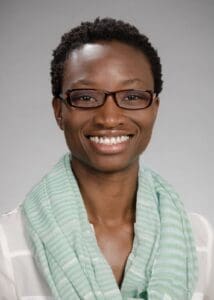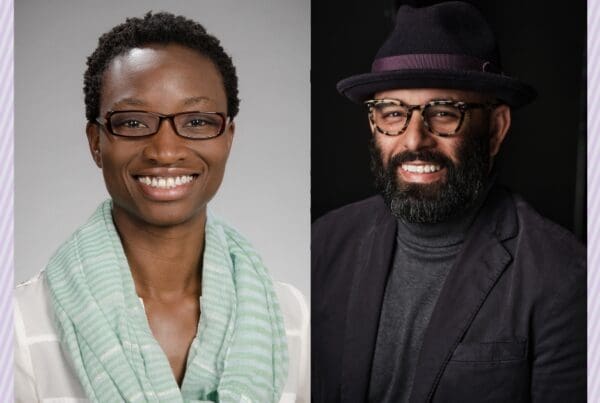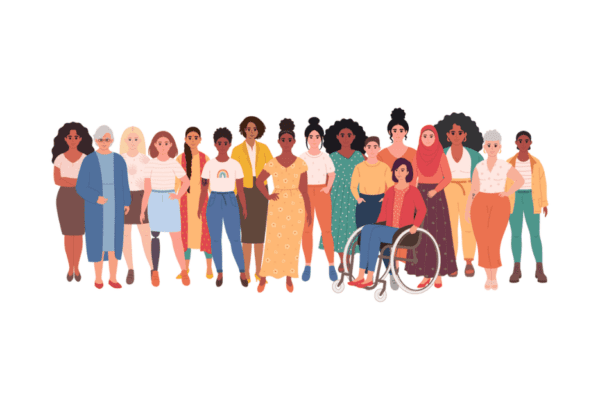Highlights | Retaining, not just recruiting, underrepresented faculty
- The Underrepresented Minority Faculty Development program supports faculty from underrepresented backgrounds.
- Kemi Doll, MD, leads the program and mentors early-career faculty.
- The program helps faculty build individual skills and connect with community.
Kemi Doll, MD, a gynecologic oncologist and associate professor of Obstetrics & Gynecology, recognized a problem in UW Medicine’s attempts to recruit more faculty from underrepresented backgrounds: Once people came here, there weren’t any programs specifically designed to support them in building their careers and connecting with community.
“As a Black faculty member myself, I navigated challenges in the early years of my career. I saw potential for a program that speaks to common challenges faculty face through the lens of being an underrepresented racial/ethnic minority in this space,” she says.

Kemi Doll, MD
She took charge, writing a proposal and presenting it to leadership. Her proposal was approved and she created the Success for Underrepresented Faculty (SURF) Career Development program at the UW School of Medicine and was made the inaugural Director of Underrepresented Minority (URM) Faculty Development. This role sits within the Office of Faculty Affairs, with joint oversight from the Office of Healthcare Equity.
Underrepresented refers to faculty from those racial and ethnic groups that have traditionally been excluded from the field of medicine resulting in their exceptionally low numbers in the fields of medicine and science compared to the U.S. general population. At the UW, this includes Black, Latinx, Pacific Islander, Native American, and certain Asian groups.
“The program is really designed to make sure we tap into and unlock the full potential of URM faculty that come to UW to build their careers,” Doll explains.
Supporting early-career faculty
Right now, the main initiative of this Directorship is the SURF program. Early-career faculty from underrepresented racial/ethnic backgrounds can apply to the program.
SURF involves one-on-one coaching as well as group skill-building sessions. Topics range from productivity to energy management and defining career goals, as well as how to navigate situations that uniquely impact underrepresented faculty.
“For example, we discuss how to say no to requests to do DEI work. Underrepresented faculty have a very different relationship with saying no than non-URM faculty, especially in a predominantly white environment,” Doll says.
The inaugural cohort began in September 2021 and runs through June 2022. Doll leads this group alongside Trish Kritek, MD, a professor of Pulmonary, Critical Care and Sleep Medicine and vice dean for faculty affairs for the School of Medicine. They are serving a cohort of ten early-career faculty.
“I want our incredible early career URM faculty members to see what they’re able to do when they have skills to navigate their environment and harness their own productivity,” Doll says.
The next cohort will follow a similar schedule, beginning in September 2022, with applications opening in the late Spring.
The importance of building community
Doll stresses that building community is as essential to the SURF program as individual faculty development. While SURF faculty are learning and progressing toward their own goals, they are all doing so together in a shared experience.
“When people are isolated, it’s not a small thing to bring them together in the same time and space to talk to each other freely outside of their environments. It helps people realize they aren’t alone and that others are facing similar challenges,” Doll says.
As part of the community-building effort, Doll, on behalf of OFA, also hosts events and gatherings open to all URM faculty for networking and relationship-building.
Creating an equitable future
Beyond the SURF program, as director of URM Faculty Development, Doll is involved in the faculty recruitment process across many departments in the School of Medicine, meeting with finalist candidates for career consults about their potential, their options, and the kind of career support they will have if they choose UW.
Her goals for the near future are to reach all URM faculty, not just those who are early career and to make support for URM faculty part of the fabric of the school.
“When we have that at the faculty level it trickles down to trainees and students, and it trickles out, so people want to join the community. I want UW Medicine to be known as a place with a great URM community — students, trainees and faculty,” she says.
Photo caption: Bessie Young, MD, associate dean and medical director for the Office of Healthcare Equity, interacts with faculty during a URM faculty event in November 2021.


